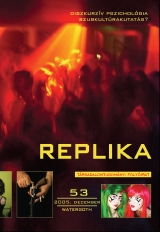Metafora, idióma és ideológia: a „nem füstölgő puskacső” szüntelen keresése
The search for ’no smoking guns’ across time
Author(s): Michael Billig, Catherine MacMillanSubject(s): Psychology
Published by: Replika Alapítvány
Keywords: discursive; psychology; discourse; smoking gun; political; war; metaphor
Summary/Abstract: This paper examines the idiom ’smoking gun’ which has been much used in the controversy about the search for weapons of mass destruction in Iraq. It is necessary to take a historical approach to understanding how metaphors might enter the political lexicon and how their usage and meaning might change over time. The passage from metaphor to idiom is often characterised in terms of a movement from ’living’ metaphor to ’dead’ metaphor. To understand how such a passage occurs, the present investigation draws upon Glucksberg’s ’property attribution’ model of metaphor and contrasts it with Lakoff’s notable theory of metaphors. Th e ’smoking gun’ idiom is traced to the Watergate controversy and its pragmatic uses in the political rhetoric of accusation are examined. It is suggested that there is nothing automatic in the use of such a phrase, as the rhetoric of blame can be countered by attempts to return the idiom from literal to metaphorical meaning. The ideological effects of the idiom ’smoking gun’ are discussed and so, more generally, is the passage from metaphor to idiom in political discourse.
Journal: Replika - Társadalomtudományi folyóirat
- Issue Year: 2005
- Issue No: 53
- Page Range: 67-87
- Page Count: 21
- Language: Hungarian

